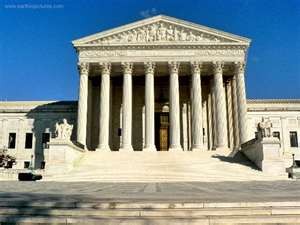Right to Counsel: One Step Forward, Two Steps Back
 As part of its end-of-term flurry, the U.S. Supreme Court issued three notable decisions in the past week on the criminal defendant’s right to effective assistance of counsel. The results were a mixed bag.
As part of its end-of-term flurry, the U.S. Supreme Court issued three notable decisions in the past week on the criminal defendant’s right to effective assistance of counsel. The results were a mixed bag.
First, the step forward: in Lee v. United States, the Court strengthened the defendant’s right to accurate legal advice in relation to plea bargaining. Lee, a South Korean who resided lawfully in the U.S. for more than three decades, faced a federal charge of possession with intent to distribute ecstasy. His attorney advised him that he would likely get a lighter sentence if he pleaded guilty, but Lee was concerned that he would be deported if convicted; deportation, not prison, seems to have been his primary concern. Lee’s lawyer assured him that he would not be deported, so Lee agreed to the guilty plea. However, the lawyer was wrong — Lee faced mandatory deportation as a result of his conviction. When Lee found out, he sought to withdraw his guilty plea on the basis of ineffective assistance of counsel.
The lower courts rejected his motion. For Lee to show a violation of his constitutional right to effective assistance of counsel, he was required to demonstrate both deficient performance by this attorney and prejudice. The lower courts seemed to accept that Lee’s lawyer performed poorly, but held that Lee could show no prejudice since he had no viable defense if the case had gone to trial. In other words, even with better information, Lee would have been convicted and deported anyway.
The Supreme Court reversed, holding that prejudice can be established in some cases based on the lost opportunity to have a trial, without regard to the likely outcome of that trial.


